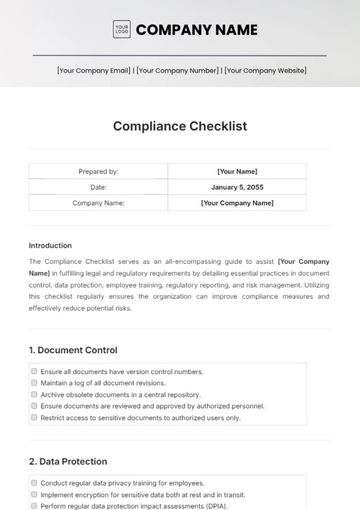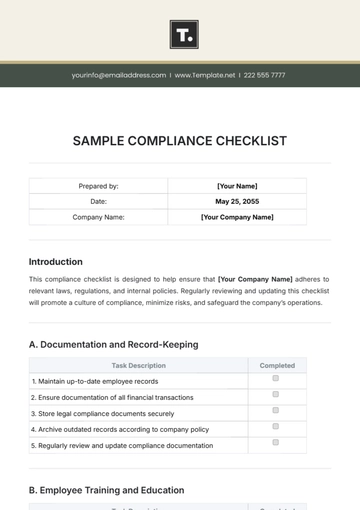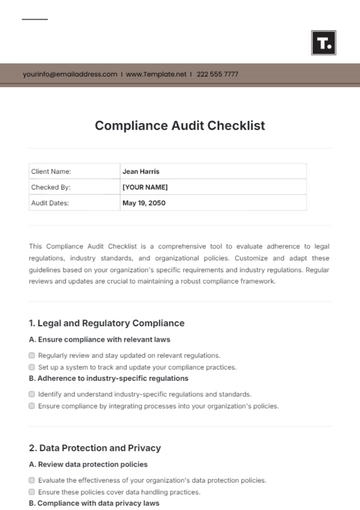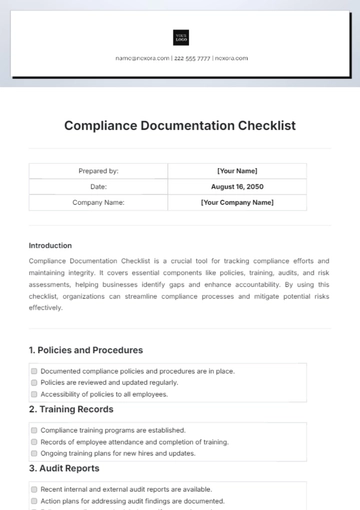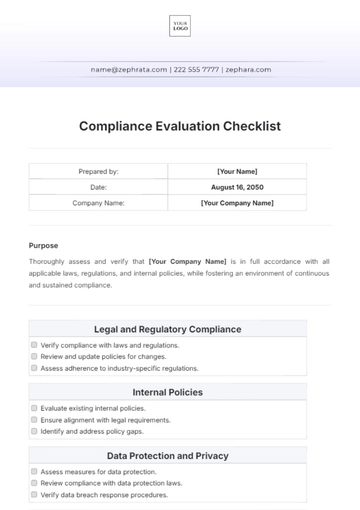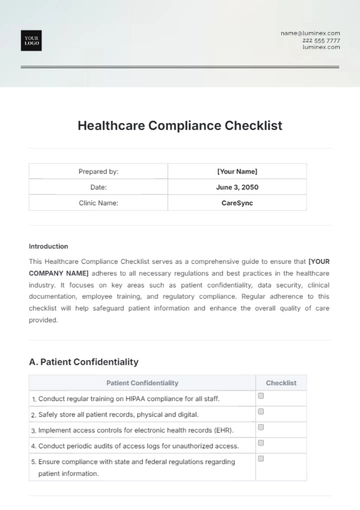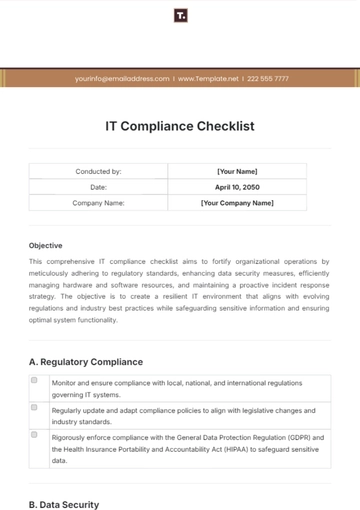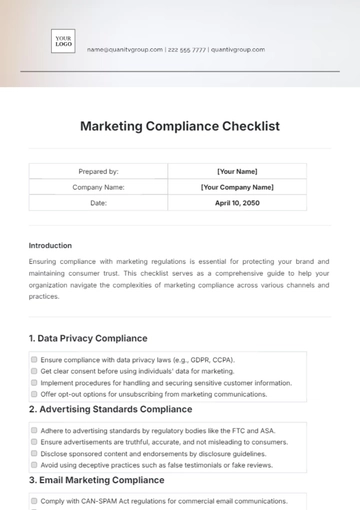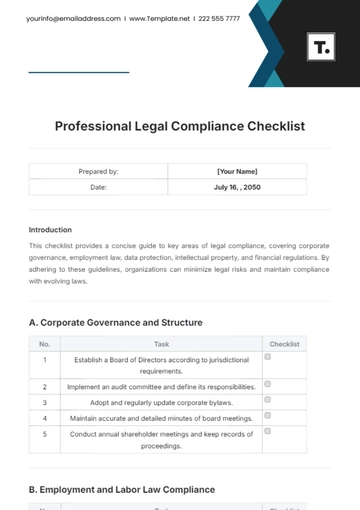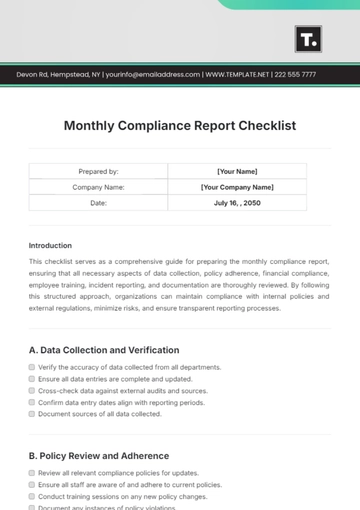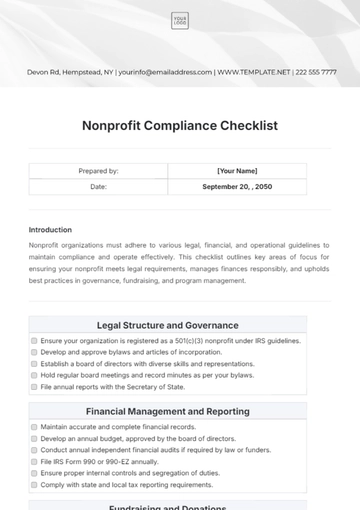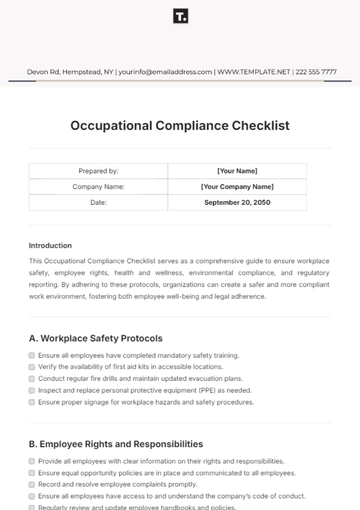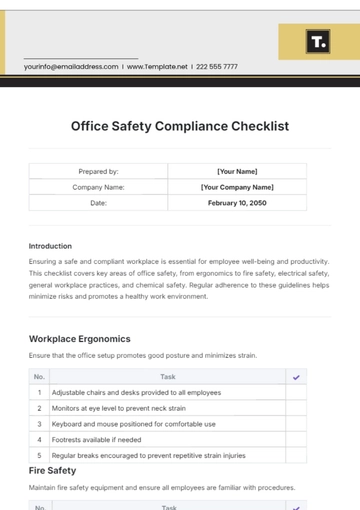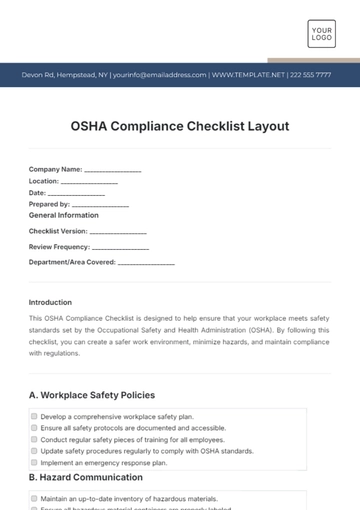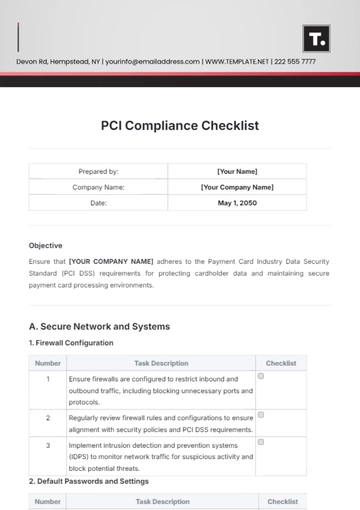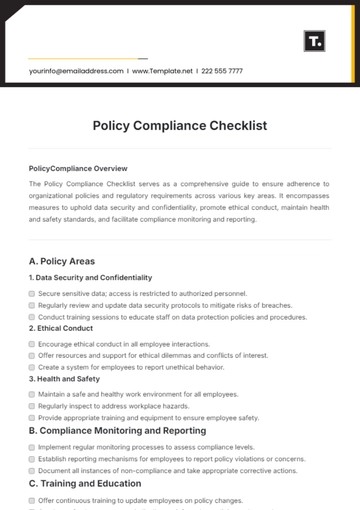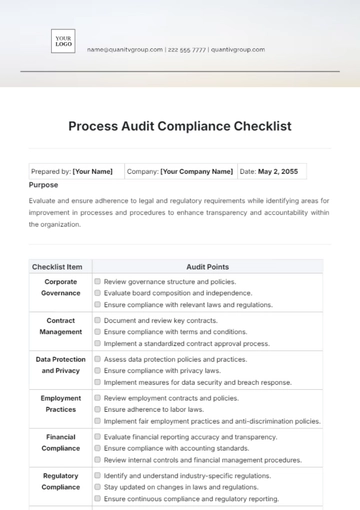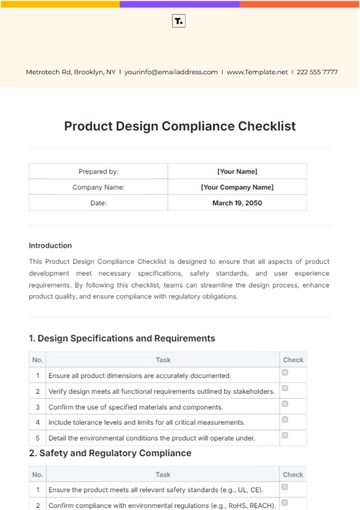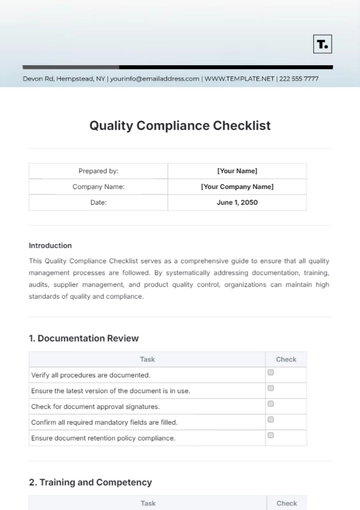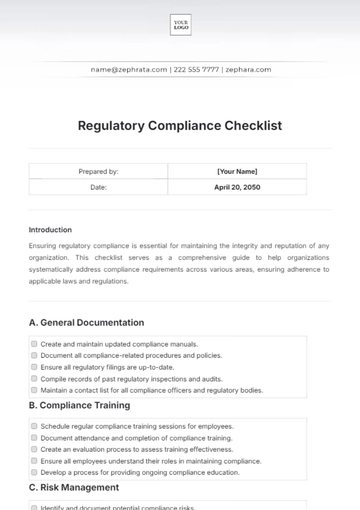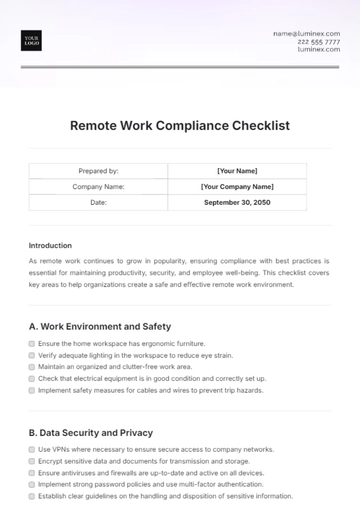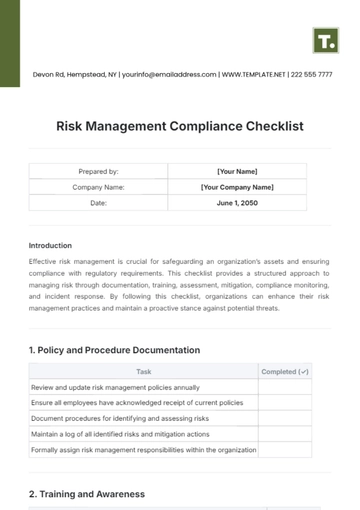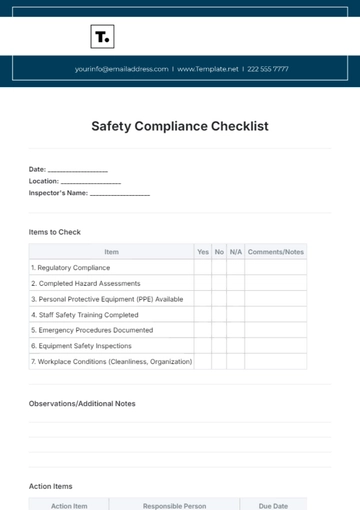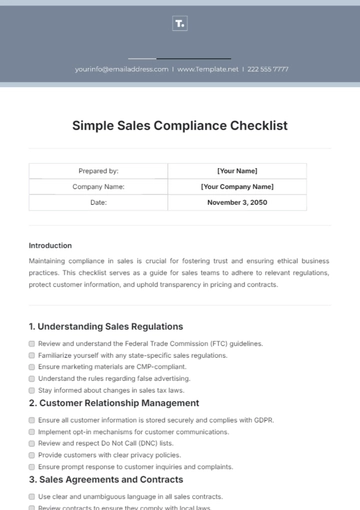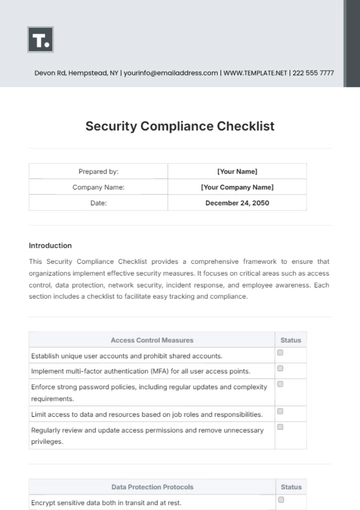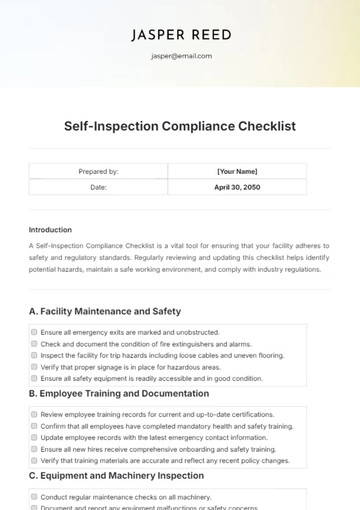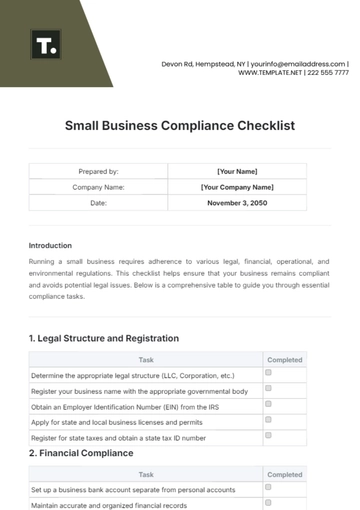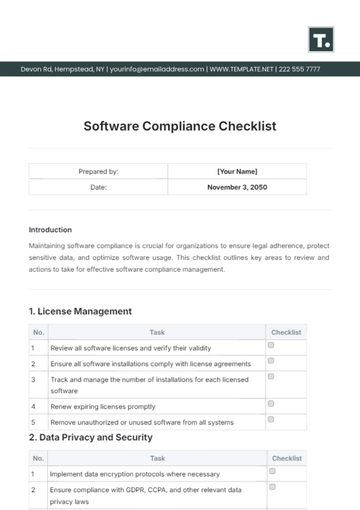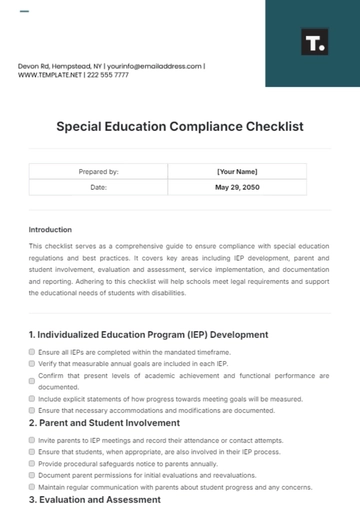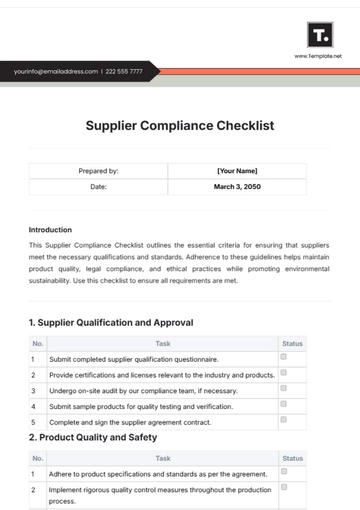Free CPRA Compliance Checklist
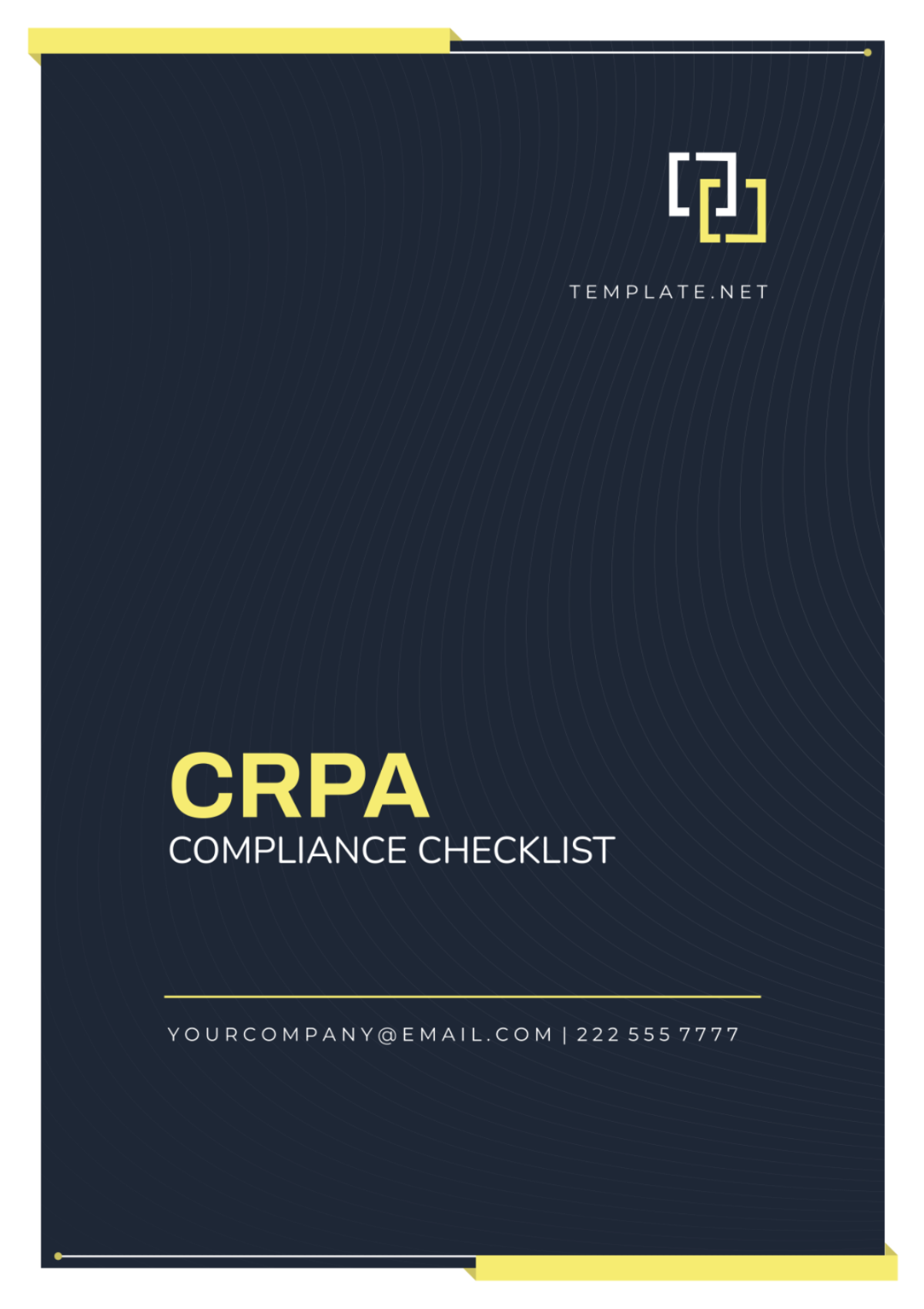
I. Compliance Program Overview
Objective: To ensure [YOUR COMPANY NAME] complies with the California Privacy Rights Act (CPRA) and other relevant privacy regulations.
Compliance Officer: [YOUR NAME], [YOUR TITLE]
Effective Date: [DATE]
Review Schedule: Bi-annually or as required by changes in CPRA or other applicable laws.
Review existing privacy policies to comply with CPRA requirements.
Assign a compliance officer to oversee CPRA compliance.
Establish a clear timeline for implementing CPRA compliance measures.
Regularly review and update CPRA compliance efforts as needed.
II. Data Processing Policies
Data Collection and Use
Review and update data processing policies to align with CPRA requirements.
Implement procedures for obtaining consent for data processing activities.
Establish protocols for responding to data subject requests under CPRA.
Develop procedures for documenting and tracking data processing activities.
Data Retention and Deletion
Conduct a data inventory to identify gathered personal information.
Implement appropriate data retention policies and procedures.
Set up secure methods to delete or anonymize personal data when requested.
Train employees on proper data retention and deletion procedures.
III. Data Protection Measures
Data Security
Safeguard personal information from unauthorized actions.
Regularly conduct security checks to identify and handle vulnerabilities.
Ensure vendors follow CPRA-mandated data security standards.
Provide ongoing training to employees on data security best practices.
Data Minimization
Minimize unnecessary personal data collection by reviewing practices.
Limit access to personal information to authorized personnel only.
Regularly refresh vendor deals for data minimization compliance.
Implement automated data minimization measures where feasible.
IV. Privacy Notices and Disclosures
Include CPRA-required details in revised privacy notices/disclosures.
Detail clear data processing including reasons, types of collected personal info, and consumer rights.
Ensure transparency regarding the sale and sharing of personal information and provide opt-out mechanisms as required by CPRA.
Train customer service representatives on how to properly respond to consumer inquiries about privacy notices and disclosures.
V. Employee Training and Awareness
CPRA Training
Train employees thoroughly on CPRA requirements and responsibilities.
Regularly train employees on CPRA regulation updates.
Provide training manuals and online modules for CPRA training.
Monitor employee participation and completion of CPRA training activities.
Privacy Awareness
Promote personal information best practices to cultivate privacy awareness culture.
Urge employees to report observed privacy issues or violations.
Reward employees for excellent privacy practices.
Include privacy awareness in employee evaluations and goal-setting.
VI. Vendor Management
Vendor Assessment
Oversee vendor and third-party personal information handling compliance.
Make sure vendor contracts have CPRA compliance and data protection clauses.
Regularly check vendor practices for CPRA compliance.
Set up procedures to end vendor contracts if they don't comply with CPRA.
Vendor Communication
Inform vendors and third parties about CPRA compliance expectations.
Train vendors on CPRA requirements or provide relevant resources.
Set up ongoing communication and collaboration channels with vendors for CPRA compliance.
Record all vendor communications about CPRA compliance.
VII. Data Breach Response Plan
Plan Development
Develop a CPRA-compliant data breach response plan.
Determine main stakeholders, define their roles and duties during a data breach.
Set up protocols to evaluate data breach severity and decide proper responses.
Conduct tabletop exercises and simulations to test the effectiveness of the data breach response plan.
Incident Response
Establish procedures for promptly responding to data breach incidents.
Develop templates for notifying affected individuals and regulatory authorities in the event of a data breach.
Establish a communication plan for keeping internal and external stakeholders informed during a data breach incident.
Document all steps taken in response to data breach incidents for post-incident analysis and reporting.
VIII. Record-keeping and Documentation
Record Maintenance
Maintain records of data processing activities, including data subject requests, consents, and data breaches.
Ensure records are organized, secure, and easily accessible for auditing purposes.
Implement a document retention policy to ensure records are retained for the required duration.
Regularly review and update records to ensure accuracy and completeness.
Documentation
Document all incidents, breaches, or complaints related to CPRA compliance.
Maintain comprehensive CPRA compliance records such as policy alterations, trainings, and audits.
Maintain a central storage for quick CPRA document reference and retrieval.
Apply version control for tracking changes in CPRA-related documents.
IX. Signature
This CPRA Compliance Checklist Template is designed to assist [YOUR COMPANY NAME] in ensuring compliance with the California Privacy Rights Act. Please customize the checklist according to your organization's specific requirements and practices.

[YOUR NAME]
Compliance Officer
Date:
- 100% Customizable, free editor
- Access 1 Million+ Templates, photo’s & graphics
- Download or share as a template
- Click and replace photos, graphics, text, backgrounds
- Resize, crop, AI write & more
- Access advanced editor
Introducing the CPRA Compliance Checklist Template from Template.net. Crafted for efficiency, it's meticulously designed for seamless integration into your workflow. Fully editable and customizable, this template ensures tailored solutions to your CPRA needs. Easily modify and fine-tune using our intuitive Ai Editor Tool. Simplify compliance with precision and ease.c
You may also like
- Cleaning Checklist
- Daily Checklist
- Travel Checklist
- Self Care Checklist
- Risk Assessment Checklist
- Onboarding Checklist
- Quality Checklist
- Compliance Checklist
- Audit Checklist
- Registry Checklist
- HR Checklist
- Restaurant Checklist
- Checklist Layout
- Creative Checklist
- Sales Checklist
- Construction Checklist
- Task Checklist
- Professional Checklist
- Hotel Checklist
- Employee Checklist
- Moving Checklist
- Marketing Checklist
- Accounting Checklist
- Camping Checklist
- Packing Checklist
- Real Estate Checklist
- Cleaning Checklist Service
- New Employee Checklist
- Food Checklist
- Home Inspection Checklist
- Advertising Checklist
- Event Checklist
- SEO Checklist
- Assessment Checklist
- Inspection Checklist
- Baby Registry Checklist
- Induction Checklist
- Employee Training Checklist
- Medical Checklist
- Safety Checklist
- Site Checklist
- Job Checklist
- Service Checklist
- Nanny Checklist
- Building Checklist
- Work Checklist
- Office Checklist
- Training Checklist
- Website Checklist
- IT and Software Checklist
- Performance Checklist
- Project Checklist
- Startup Checklist
- Education Checklist
- Home Checklist
- School Checklist
- Maintenance Checklist
- Planning Checklist
- Manager Checklist
- Wedding Checklist
- Vehicle Checklist
- Travel Agency Checklist
- Vehicle Inspection Checklist
- Interior Design Checklist
- Backpacking Checklist
- Business Checklist
- Legal Checklist
- Nursing Home Checklist
- Weekly Checklist
- Recruitment Checklist
- Salon Checklist
- Baby Checklist
- Equipment Checklist
- Trade Show Checklist
- Party Checklist
- Hospital Bag Checklist
- Evaluation Checklist
- Agency Checklist
- First Apartment Checklist
- Hiring Checklist
- Opening Checklist
- Small Business Checklist
- Rental Checklist
- College Dorm Checklist
- New Puppy Checklist
- University Checklist
- Building Maintenance Checklist
- Work From Home Checklist
- Student Checklist
- Application Checklist
